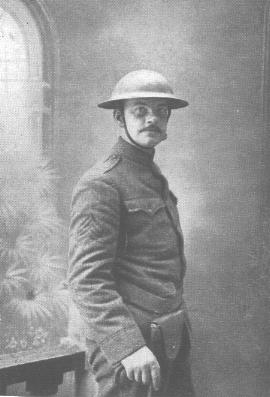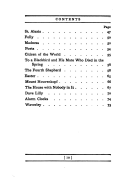“I think that I shall never see
A poem lovely as a tree.”
"Trees" - This poem was first published in Poetry: A Magazine of Verse Vol. 2 (August 1913). The first two lines were first written down on the 2nd of February 1913.
Trees and Other Poems (1914)
Source: Trees & Other Poems
Context: I think that I shall never see
A poem lovely as a tree.
A tree whose hungry mouth is prest
Against the earth's sweet flowing breast;
A tree that looks at God all day,
And lifts her leafy arms to pray;
A tree that may in Summer wear
A nest of robins in her hair;
Upon whose bosom snow has lain;
Who intimately lives with rain.
Poems are made by fools like me,
But only God can make a tree.

